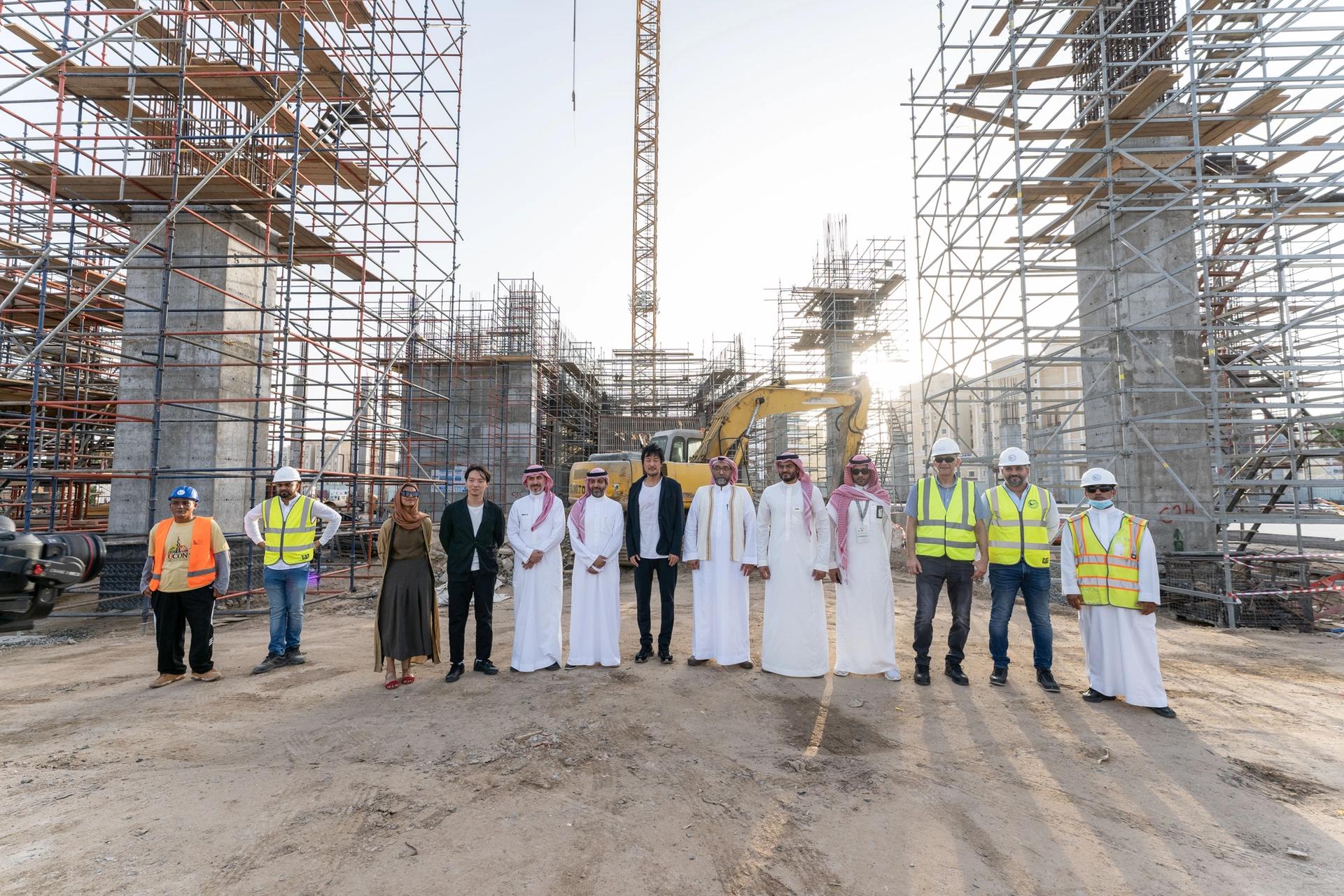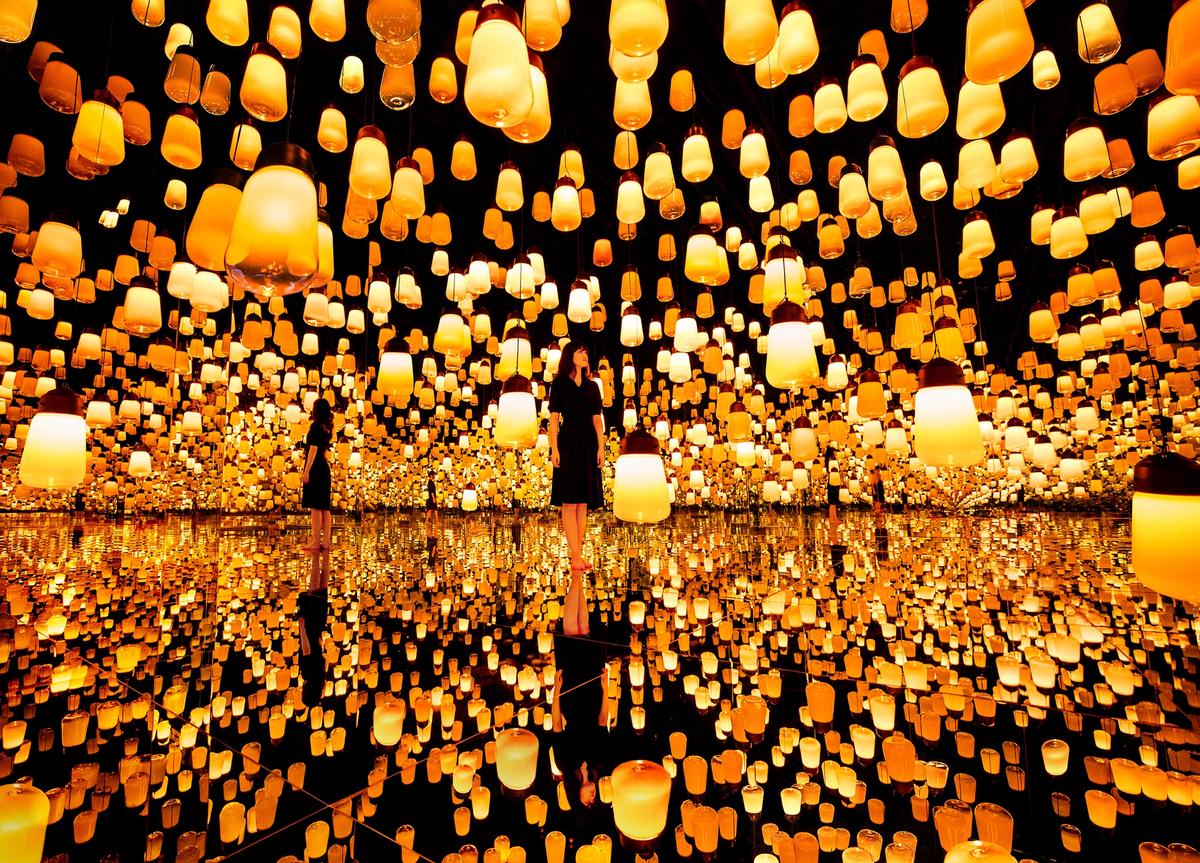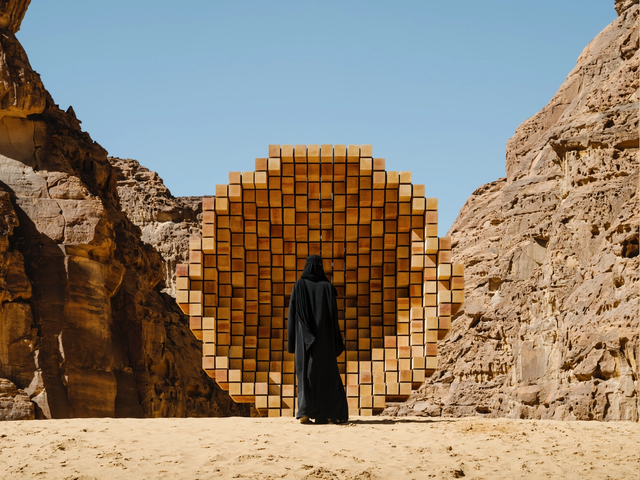The multimedia collective teamLab is moving ahead with plans for a new digital art museum in Jeddah, Saudi Arabia, the latest move in the government's cultural offensive aimed at rebranding the Middle Eastern state and softening its ultra-conservative image. “The all-new teamLab Borderless Jeddah is being built on the shores of Al-Arbaeen Lagoon overlooking the panoramic views of the Unesco World Heritage Site [historic Jeddah],” a project statement says. The groundbreaking ceremony for the site was attended by the teamLab founder Toshiyuki Inoko and Hamed bin Mohammed Fayez, Saudi Arabia’s deputy minister of Culture.

Members of teamLab and the Saudi Ministry of Culture attended the grounbreaking ceremony for the new digital art space in Jeddah Photo: Mohammed Alaskandrani
“The immersive museum will comprise over 50 works spread across its expansive and labyrinthine spaces including Borderless World, Athletics Forest and Future Park,” the organisers add. A new teamLab installation will also be unveiled in the new venue. "The museum is now under construction, and it is scheduled to open within the next few years. We should know the opening year within a month or two," says a teamLab spokesman.
The Tokyo-based technology group teamLab, known for producing crowdpleasing immersive experiences awash with virtual waterfalls and flowers, has entered into a ten-year agreement with the Saudi Ministry of Culture to develop works for the planned museum. The plans were first announced late 2020. teamLab are co-represented by Pace gallery.
teamLab Borderless Jeddah is part of a drive to promote the cultural credentials of Saudi Arabia, helping to diversify the economy and deliver a more “open” image of the country, in line with the government’s Vision 2030 plan. The new museum follows other cultural ventures such as the Desert X sculpture exhibition which opened its second edition in the AlUla region in northwest Saudi Arabia earlier this year.
Free speech organisations continue to criticise Saudi Arabia’s record on human rights, however. Last month the mass execution of 81 individuals signalled “an appalling escalation in Saudi Arabia’s use of the death penalty”, Amnesty International says. Forty-one of those executed were from Saudi Arabia’s Shi’a minority, “the latest demonstration of Saudi Arabia’s politicised use of the death penalty to silence dissent in the Eastern Province,” Amnesty adds.



